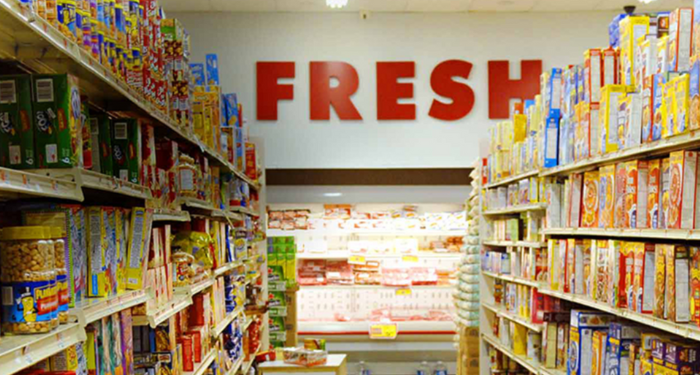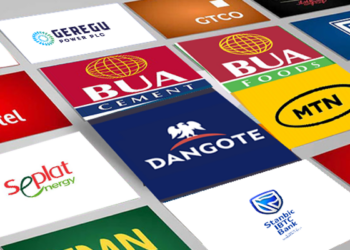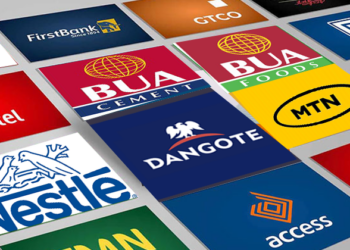Story highlights
- FMCGs and Telcos in Nigeria plan to raise between N1.6 trillion and N2 trillion to repair their financial standing, with the economy aiming for a total equity infusion of about N6 trillion ($5 billion).
- Government policy changes in 2023, such as fuel subsidy removal and FX unification, severely impacted company balance sheets, leading to significant foreign exchange losses and the need for recapitalization.
- Strategic moves by companies, including asset revaluation and capital raises, aim to restore financial stability and investor confidence, despite recent share price declines.
FMCG’s and Telcos in Nigeria are sharpening their investor relations game ahead of massive capital raise as they strive towards repairing their battered balance sheets.
This is as commercial banks in Nigeria also embark on a capital raise that is estimated at about N4.2 trillion based on the minimum capital requirements set for banks by the central bank.
For FMCGs and Telcos, Nairametrics estimates a capital raise of between N1.6 trillion and N2 trillion.
Combined, the economy seems set to finance a staggering N6 trillion or $5 billion in equity for some of Nigeria’s largest companies
FMCG on the hook for trillions
The financial year ended 2023 and the first quarter of 2024 will go down in history as one of the most difficult years financially for the management of these companies largely due to financial decisions taken by the government to reverse the fortunes of the economy.
In June 2023, the federal government decided to remove the controversial fuel subsidy and unify the multiple foreign exchange windows inherited from the Buhari administration.
The government’s policy changes in 2023, which include the removal of fuel subsidies, naira devaluation, continuous interest rate hikes, and other macroeconomic challenges, significantly impacted businesses, including FMCGs and telecom companies. The situation was dire in 2023 and has become even more critical in 2024.
The exchange rate window’s unification particularly affected the balance sheets of the companies as the resultant depreciation meant they had to take in billions in provisions for their foreign currency balances, most of which were foreign loans.
A recent analysis from Nairametrics suggests the companies incurred a staggering N1.7 trillion in foreign exchange losses in 2023 alone due to the depreciation of the naira.
For some of these companies, the losses grew so large it effectively wiped out their entire shareholder funds, stopping them from paying dividends. To reverse these trends, most of these companies will have to embark on a combination of balance sheet restructuring and recapitalization.
A cursory review of the shareholder funds of these companies as of March 2023 just before the June 2023 forex unification and the removal of fuel subsidy reveals they had combined shareholder funds of about N1.09 trillion. However, between then and March 2024 when they published their first quarter interim results, their shareholder funds moved to a negative of N523.9 trillion.
Some of the companies have announced plans to recapitalize while others have also combined this with plans to revalue their fixed assets as a means of achieving their capital restructuring plans.
Nigeria Brewery, Nigeria’s largest brewer announced it had obtained shareholders’ approval to raise around N600 billion in the rights issue. According to Nairametrics estimates, the company needs to raise at least N158 billion to get back to the shareholder funds level of 2023 Q1.
The company also has an external debt position of N469 billion which it will also need to repay to stay financially solvent. Nigeria Breweries also said it plans to convert part of its debt (N264 billion) belonging to its parent company into equity.
International Breweries, another local brewer, also announced plans to embark on a N588 billion rights issue. According to Nairametrics findings, International Breweries need at least N110.5 billion to return back to their 2023 Q1 shareholder funds levels.
Guinness Nigeria Plc asserts that N81 billion of its FX losses are unrealized and remains confident in the resilience of its business to withstand the storm and emerge even stronger. The company stated it is focusing on innovation and enhancing operational excellence to meet evolving consumer tastes and preferences, guided by a strategic vision that prioritizes long-term sustainability and shareholder value.
The about N83 billion in net FX losses contributed to the pre-tax loss of N60.5 billion for the quarter, which consequently wiped out shareholders’ funds. According to Nairametrics, the company may need to raise N85 billion to return to its March 2023 figures.
Meanwhile, on June 1, 2024, the company announced that family-owned Tolaram will acquire Diageo’s 58.02% shareholding in Guinness Nigeria for about N103 billion ($70 million).
This expected infusion of capital from the acquisition, along with the strategic alignment and resources provided by Tolaram, could reduce the need for Guinness Nigeria to seek fresh capital from the market, estimated at N85 billion which would have returned the company to its Q1 2023 position.
Nestle, which claims most of its losses were unrealized, has moved towards reevaluating some of its assets, a move that is expected to plug the hole by N217 billion. Nairametrics estimates Nestle needs about N117 billion to get back to its 2023 Q1 levels.
Telco giant MTN Nigeria stated that it is focused on reducing the various exposures its business has to US dollar volatility, particularly its outstanding letters of credit, which have contributed to earnings volatility through FX losses.
The company reported that it has utilized the improved liquidity in the FX market to reduce its outstanding LC obligations to $243.4 million as of March 31, 2024, down from $416.6 million as of December 31, 2023.
However, according to findings by Nairametrics, MTN Nigeria may need about N870.514 billion to return to its 2023 Q1 levels.
This anticipated injection of equity capital is expected to influence the balance sheets, and overall financial health and boost investor confidence.
Investors are likely to view this move as a positive signal of the companies’ commitment to addressing their financial challenges and restoring stability
Recent market trends have shown a decline in the share prices of these companies.
The downward trend in share prices suggests a potential alignment with the poor financial performance of these companies.
Despite previous surges in market capitalization, the recent decline indicates a shift in investor sentiment, possibly reflecting concerns about the financial health and performance of these companies.
Stakeholders/Experts Perspective
Stakeholders, market operators, and analysts have expressed varied views and recommendations on the issue of banking recapitalization in Nigeria.
The Chartered Institute of Stockbrokers has expressed confidence that the Nigerian capital market has the intrinsic depth to meet the capital-raising requirements of the banks.
This confidence is reflected in its position paper on banking recapitalization. The institute’s belief is based on several factors: the ample time given by the apex body to raise the capital, the banks’ strong track record of good returns and liquidity, and the popularity of banking stocks among both domestic and foreign investors.
Meristem, a notable wealth management company, shares this optimism and expects increased foreign investments and capital flow due to the relatively low valuation of Nigerian banks compared to their regional peers.
Regarding the likely impact of the recapitalization, Meristem believes the capital raise will have a dual effect.
While the Return on Equity (ROE) may decrease due to the dilution of existing shareholder ownership by the influx of new capital, it is expected to increase activities and participation in the Nigerian capital market.
Additionally, this capital infusion is projected to boost earnings for capital market operators and bring moderation to the exchange rate.























